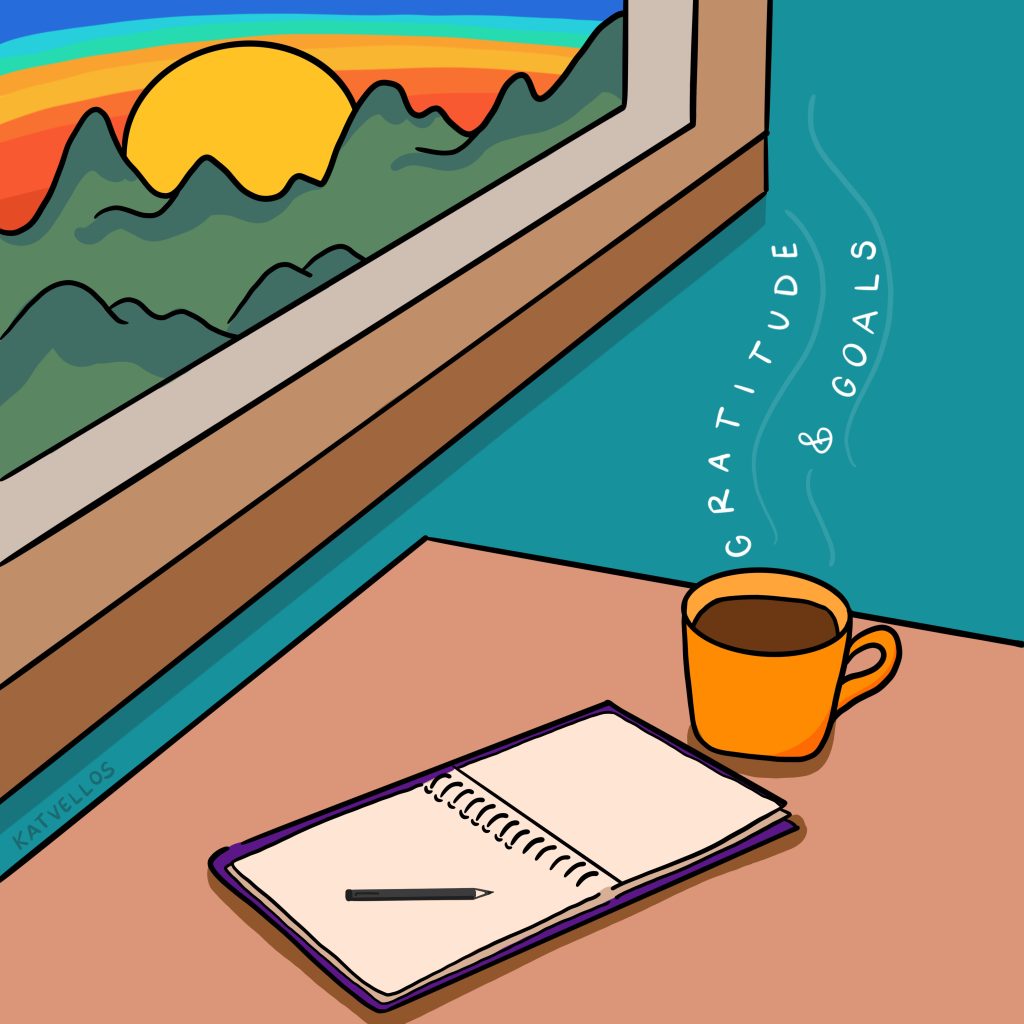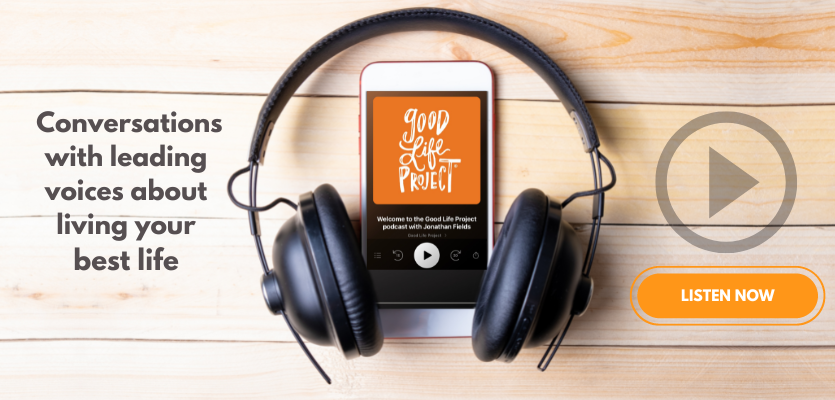We all know the problem:
You wake up stressed. Move through your day more stressed. Go to sleep even more stressed, promising yourself that tomorrow’s somehow going to be different. Then you wake up and do it again. Just like almost everybody else.
Like we said, we all know the problem. But very few people know the answer: awareness.
Awareness is life. That might sound like a sweeping statement, but it’s actually quite simple.
The more you’re able to harness your attention, the more you can live intentionally, making sure that you’re filling your time on the planet with those things you want. Tapping into presence is the difference between reacting to your day and living it.
And one of the most powerful ways to cultivate awareness in your life is with an intentional morning routine. Why? Because scheduling certain high-reward activities early in the morning helps set you up for the rest of the day, avoids decision fatigue, and lets you leverage your brain’s best hours in ways that benefit the rest of your life.
Here’s 5 key elements we love including in morning routines:
1. Prioritize High Quality Sleep
OK, so this one actually goes back to the night before –– but it is key to having a good morning. Sleep is having a moment in our popular culture, with people finally starting to realize and appreciate its importance, and it’s not a minute too soon.
After all, it’s key for everything from managing stress to lowering blood pressure to improving athletic performance to protecting your brain against Alzheimer’s to working more productively to being more present in your relationships.
And, it often slips down our priority list, sabotaging any morning efforts to tap into awareness. After all, even the very best intentions to meditate or do morning pages are going to fall apart if you can’t keep your eyes open.
So make this your first priority when it comes to having a better morning, because the truth is, even if you do nothing else you read here, sleeping better will help you be more aware and present with what’s going on around you throughout the day:
“Sleep supports the conversion of implicitly acquired information into explicitly available knowledge.” (Biological Psychology).
2. Clear your mind first thing.
One of the main awareness-killers is rumination (aka your mind getting stuck on thoughts and looping around and around about the same thing.) After all, if you’re focused inwards trying to manage whatever your’e mind’s gotten up to, you’re not going to be very aware of all that life going on around you. The good news is, there’s a really simple thing you can do to stop the spin: write it out.
It sounds super simple, almost like a trick, but it actually taps into this cool thing called embodied cognition: a process by which you think outside of your own head.
“There’s no privileged border of the skin and the skull when it comes to the Mind. What matters is the role that it [the mind, or a piece of external technology] plays.” (The Extended Mind).
In other words, just writing down your thoughts helps your brain think about those thoughts and engage with itself in a different way, literally thinking out loud. The classic Julia Cameron exercise of Morning Pages can be one way to do it, but the truth is, journaling of any kind, and for any length of time can be a good way to clear out any mental clutter that might be hanging around. Even something as simple as making a list of everything that’s on your mind –– no matter how big or small –– can externalize those thoughts, and let you decide when you want to deal with them (or if you even need to revisit them at all!)
3. Take your “gratitude vitamin”.
Chances are you’ve done some kind of gratitude practice before –– but do you know why they work? It turns out that gratitude has a range of both psychological and physical effects:
“Trait gratitude and trait optimism both predicted lower heart rate and blood pressure, better sleep quality, more exercise, less stress, more positive expectations and reflections, and greater feelings of appreciation toward others.” (Emotion).
While researchers are still figuring out the exact mechanism behind gratitude and well-being, it is clear that cultivating a gratitude practice has a whole slew of benefits. Making a point of focusing on gratitude first thing in the morning helps put you in a positive and attentive state of mind that can last throughout the rest of the day.
In this way, you can think of it kind of like a vitamin –– just like you take your probiotic to help your microbiome, or some fish oil capsules to help your brain function well throughout the day, take your “gratitude vitamin” to help out with awareness.

Art by Kat Vellos
4. Set goals to keep you on track throughout the day.
It’s really, really easy to let other people run your day –– even without meaning to. If you start your day off scrolling social media, looking at your inbox or texts, or listening to your messages, all the sudden other people’s priorities become yours, and before you know it, they’ve set the agenda for your day and you’re just running to keep up.
That’s why it’s important to set your goals for the day first thing in the morning, before other people get a say, putting yourself in a proactive mindset rather than a reactive one.
Dr. Ron Friedman tells HBR:
“Typically, we have a window of about three hours [in the morning] where we’re really, really focused. We’re able to have some strong contributions in terms of planning, in terms of thinking, in terms of speaking well. And if we end up squandering those first three hours reacting to other people’s priorities for us, which is ultimately what voicemail, or email is, is a list of other people’s requests for our time, that ends up using up our best hours and we’re not quite as effective as we could be.” (HBR)
Plus, goal-setting is a great way to keep yourself on track when other things do come up during the day. Instead of having to attend to and triage each new thing as you juggle priorities, you can use your goal as a North Star to come back to what really matters, and make sure you do the day on your terms.

5. Meditate, even just a little bit.
People have mixed feelings about meditation, and for good reason. It can be a frustrating experience, especially if you go into it with judgment. But meditation is a fantastic way to train your brain to be more present, and to return to awareness when your attention has wandered.
Meditating in the morning is especially powerful, since it sets you up to do your day from your parasympathetic nervous system (the rest and digest one) instead of hurtling through the day running on the sympathetic nervous system (the fight or flight one). Plus, taking this kind of intentional pause first thing helps you go through the day with more flexibility and grace, no matter what comes along.
In fact, a study specifically on morning meditation found that among those who meditated in the morning,“There was a significant decrease in both state and trait anxiety, and a significant increase in the five facets of mindfulness and ability to decenter [aka the ability to observe your own thoughts in an objective, detatched way].” (The FASEB Journal).
And just in case you (like so many others!) have tried meditation before and struggled to get into it, author, meditation teacher, and GLP podcast guest Light Watkins has your back. He has a useful reframe for the whole process, taking it away from something you do as an end in and of itself to a way of getting to a more positive and creative space in your life in general.
“The reality of the situation is that everybody’s mind is busy, right? We all have technically the same number of thoughts somewhere between sixty to ninety thousand thoughts a day. So we’re all experiencing busy minds.
But it’s really not a quantity issue. It’s more of a quality issue. If your mind is experiencing mostly negative thoughts, that’s what people describe as a busy mind, because nobody’s complaining about having too many happy thoughts or too many creative thoughts … if one person can experience that, you can experience it as well.”
Let’s recap:
–– As Annie Dillard says, how we spend our days is how we spend our lives. Awareness is the key to (1) actually being present in your days and (2) making more aligned decisions about how you spend your days.
–– Morning routines are fantastic opportunities to create more awareness throughout your whole day. Why? No decision fatigue, possibly better results with your practices, and good momentum.
–– Set yourself up for success with good sleep the night before, it’ll make mornings way better.
–– Try morning pages: they help clear out any junk in your brain and give you a “clean slate” to get your day started.
–– Gratitude exercises can help you focus on what matters most.
–– Goal-setting ensures that you’re following your priorities for the day and not everybody else’s.
–– Even a tiny meditation can have ripple effects of increased awareness throughout the day.
So, how about it? What routine are you going to try tomorrow?
The very best thing about a morning routine is that every single day you have an opportunity to try something different –– after all, you’re going to have a brand new morning every day for the rest of your life.
So what are you going to try tomorrow? We’d love to hear about it and give you the community support that makes all the difference in making great habits like this stick, so why not join the GLP Newsletter family? We craft each email with an intention to connect, and love getting to know each and every one of you. Join us here.



